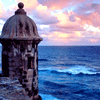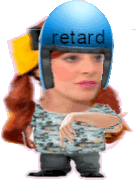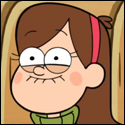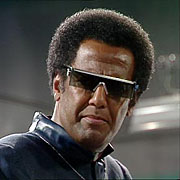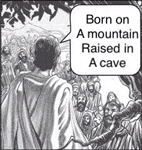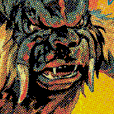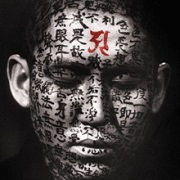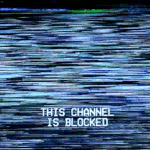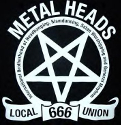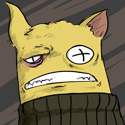|
The thread on Russian literature has been going for a while so I thought I'd try to make a thread to talk about another section of literature that I think is pretty underappreciated in countries outside Japan. This is kind of odd considering they've produced two Nobel Literature prize winners (Yasunari Kawabata and Oe Kenzaburo) and a couple more authors who could have won it but didn't for various reasons (ritual suicide being one). Sure a lot of people on this forum have read some Haruki Murakami, and as cool as he is, and as much as I like him, I thought I'd try to spark some discussion about some other authors. I'm not incredibly well-read in Japanese literature, which is kind of sad since that's what I plan to go to grad school to study, but I've read some great novels and have an extensive reading list waiting for me. I also am working through translating some stuff. There's something that just seems different about Japanese literature. Now, obviously it's a very different culture, and part of it might simply be translation issues, but I think it's more than that. Japanese novels have an austerity to them; Japanese authors often are able to distill a scene down to its bare necessities and make it all the more meaningful and jarring because of that. I think maybe a lot of it has to do with having things like haiku in their literary past. Anyway, I thought I'd try to list a few big names and some of the stuff they've written. These will all be modern novelists/short story writers because that's what I'm most interested in. Oe Kenzaburo is one of Japan's Nobel Prize winners, as well as a winner of just about ever major Japanese literary award available. Quite prolific, he's also considered extremely non-Japanese in his opinions and politics. I've only read one of his works, sadly, A Personal Matter. It's the story of a man, called Bird, who feels trapped in his life and dreams of going on safari to Africa, but his wife gives birth to a deformed, possibly braindead child. Bird is an anti-hero, and more than a little pathetic. But he remains sympathetic, probably because, although we might revile his thoughts about the baby, most of us would admit to thinking the same things in that situation. Yasunari Kawabata The other Japanese Nobel Prize winner. This guy is amazing. I read Snow Country a while ago and, at the time, didn't care for it. I thought it was dull. Right now, though, I'm working through translating a version of the novel that he wrote as a very short story. He distills it down to its bare essence and creates essentially a series of short vignettes, each showing a scene that, together, tell the story of a wealthy guy from Tokyo coming to the mountains and getting involved in a country geisha. It's like reading a series of haikus. After this I plan to re-read the full novel. I think if you want to get a sense of Japanese prose, this is the guy to try. Natsume Soseki Just about everyone knows the name. He's incredibly popular in Japan still, and one of, if not the most famous Japanese author. Of his works, the most famous is probably Kokoro. It's a story that shows the disconnect and growing gap between generations as Japan modernizes. In it, the narrator forms a connection with a man simply labeled Sensei, meaning teacher, master, etc. The bulk of the novel is a letter Sensei writes to the narrator in which he bares his soul regarding his past and the things he's done and felt. Again, very sparse prose that may seem dry, but the emotion that it protrays becomes incredibly real. I've also read I am a Cat which is a very large novel that takes the perspective of a cat describing the goings on of his master's house. It's amusing at times, boring at others, but it's an interesting look at the culture of the time. Yukio Mishima This guy is also very well know, not only because of his works, but also because of his death. He and a group of radicals took over an office in a headquarters of the Self-Defense Force. In the end, he committed a very messy ritual seppuki - suicide by gutting yourself. If you read his novels you can tell the guy was a mess. I've read The Temple of the Golden Pavillion, a novelization of the true event wherein a crazy monk-in-training burns down a very famous temple. It was a while ago, though, so I don't remember that much other than liking it. I'm currently working through Spring Snow, the first in a tetralogy. It's very good, but the guy really had some women issues. I've been meaning to read another book of his that many people know, The Sailor Who Fell from Grace with the Sea. Jun'ichiro Tanizaki This guy was an amazing story teller. If you like magical realism or dark stories, try him. One of his most famous stories that I've read was called The Tattooer and tells the story of how a woman gets a large spider tattooed on her back. Afterwards she seems to take on demonic, seductive powers. His works are pretty dark and really delve into the darker sides of humanity, as do many of these authors actually. Ryunosuke Akutagawa I almost forgot about Akutagawa which is a crime since he's also an amazing short story writer. He gave us Rashomon and In a Grove which were later combined into a movie by Akira Kurosawa. In a Grove is especially good and tells a story wherein several different people give several different accounts of a murder. Haruki Murakami Not much to say about him since everyone knows him more or less. One of the most popular Japanese authors outside of Japan currently writing. I haven't actually read that much by him, but I did read and loved Hard-Boiled Wonderland and the End of the World. He's another great author for magical realism and creates a really surreal world even if his characters are more or less all the same. Ryu Murakami I wanted to throw him in because he's also currently writing but is less well-known. I read Coin Locker Babies a while ago and it was fantastic and fantastically messed up. If you like really crazy, post-modern works, give him a try. Those are the authors I can think of who I've read, but of course there are more out there. I hope there's some interest in this since I think it's a fascinating body of work that doesn't seem to get a whole lot of attention. So post here about your favorite works, or questions, or whatever.
|
|
|
|

|
| # ? Apr 26, 2024 12:19 |
|
Good OP. I've read I am a Cat, which I also found partially funny and partially dull, but it has stuck well in my memory and I'd say it's worth reading. Also, a bunch of H. Murakami stuff, which I think is entertaining and easy to read but all a little samey after a while, and The Sailor Who Fell From Grace With The Sea, which is rather short, but has a lot of gravitas. I want to add Natsuo Kirino, a modern popular crime author who has written, most notably, the novel Out, which I really, really enjoyed. It centers around four Japanese women who work night shifts at a factory and make those little prepared lunches that are sold in convenience stores. I class it in the same vein as Haruki Murakami, in that it is storytelling first and foremost. I've just picked up Real World and am enjoying it so far - but possibly due to the translation, the writing is a little unsophisticated with brief, simple sentences that are a bit blunt and plodding sometimes. Entertaining none the less, and I'd definately recommend Out.
|
|
|
|
Can we also talk about manga?
|
|
|
|
Don't forget Kenji Nakagami. Everyone who reads Japanese literature should (or should have already) read The Cape and Other Stories from the Japanese Ghetto.
|
|
|
|
CagedLiberty posted:Good OP. I've read I am a Cat, which I also found partially funny and partially dull, but it has stuck well in my memory and I'd say it's worth reading. Also, a bunch of H. Murakami stuff, which I think is entertaining and easy to read but all a little samey after a while, and The Sailor Who Fell From Grace With The Sea, which is rather short, but has a lot of gravitas. Actually, now that you mention it there seems to be a lot of crime or detective fiction in Japan. I did a quick search and there's even a Wikipedia article with a list of some other crime/detective/mystery authors. I've been meaning to check some of that genre out. Do you find in a significant way from western detective/mystery stories (if you've read western stuff)? Fry Pappy posted:Can we also talk about manga? I'm actually a bit torn on this since manga has a pretty different status in Japan than in the west. I've never actually read any, but there is stuff with more value than Naruto. I dunno if you meant the question as a joke, but if you have something legitimate, by all means.
|
|
|
|
z0331 posted:Actually, now that you mention it there seems to be a lot of crime or detective fiction in Japan. I did a quick search and there's even a Wikipedia article with a list of some other crime/detective/mystery authors. I've been meaning to check some of that genre out. Do you find in a significant way from western detective/mystery stories (if you've read western stuff)? Not manga, but related are novels like Vampire Hunter D. I've been reading quite a few of those and really like them. I also found some Korean to English translations of Legend of the Galactic Heroes online and if they printed them in English I'd pay $20 apiece for them, easily.
|
|
|
|
z0331 posted:Actually, now that you mention it there seems to be a lot of crime or detective fiction in Japan. I did a quick search and there's even a Wikipedia article with a list of some other crime/detective/mystery authors. I've been meaning to check some of that genre out. Do you find in a significant way from western detective/mystery stories (if you've read western stuff)? I recently read Points & Lines and a collection of short stories by Seicho Matsumoto, as well as The Tattoo Murder Case by Akimitsu Takagi. As far as the differences between western vs. Japanese writing in the detective novel genre, well, that's an interesting question. I'm not an expert on the genre at all, but I think a lot of detective/crime novels are supposed to be just as much a story about the setting as any of its characters. The Japan of Matsumoto is all trains, bland noodle and coffee shops, and cold, empty beaches. (I personally found Points & Lines to be too much about trains for my taste, as it's basically a big math/logic puzzle based on train schedules.) The Tattoo Murder Case was fascinating as a record of subcultures and life in post-war Japan. It is oddly structured; it breaks with one of the most basic conventions of detective novel. I can't really explain without spoiling it, but I got a big surprise in the middle of the novel. I think overall I noticed cultural differences more than stylistic differences. For example: love suicides. Apparently, this was an epidemic in mid 20th century Japan. I do agree with you about the "austere" thing; I found everything I read to be kind of cold and spare, but I think that's the case with a lot of Western hard-boiled genre fiction as well. Also, I think I was working with some horrible translations. I think it was in the Takagi book, it seemed to me that they were trying to help out the English reader by explaining instead of glossing things they didn't think we'd be familiar with. Like, instead of "They ate some sushi" it was "They ate some sushi, a meal of raw fish and vegetables wrapped in seaweed and vinegared rice." It was annoying. As in the Russsian lit thread, are there recommended translators of Japanese literature? Edit: Sorry for the big wall of text. Thanks for the thread; I'd love to know more about Japanese lit (the kind without pictures) beyond Murakami. hotgreenpeas fucked around with this message at 06:21 on Dec 13, 2009 |
|
|
|
hotgreenpeas posted:I recently read Points & Lines and a collection of short stories by Seicho Matsumoto, as well as The Tattoo Murder Case by Akimitsu Takagi. As far as the differences between western vs. Japanese writing in the detective novel genre, well, that's an interesting question. I'm not an expert on the genre at all, but I think a lot of detective/crime novels are supposed to be just as much a story about the setting as any of its characters. The Japan of Matsumoto is all trains, bland noodle and coffee shops, and cold, empty beaches. (I personally found Points & Lines to be too much about trains for my taste, as it's basically a big math/logic puzzle based on train schedules.) If you go back in history a bit, to before the Meiji Restoration, love-suicides were ridiculously prevalent in literature. Like practically every other story or drama ended with both lovers throwing themselves off a cliff or something. They loved their suicide back then. As for translations, there really doesn't seem to be an enormous variety to choose from compared to something like Russian literature. For example, Kokoro is one of the most recognized Japanese novels outside of Japan, and yet I think there's only one translation widely available which is the one by Edwin McClellan. Beyond that, there are relatively few publishing houses that put out Japanese translations, Tuttle being the biggest that I know of. I think that as you get more towards the well-known authors, though, the translations are probably of a higher quality in general. Jay Rubin, though, who works with Haruki Murakami, has done a lot of translations and I think he's generally pretty good. I would maybe recommend picking up a collection of Akutagawa's short stories. Aside from In a Grove they're not crime fiction really, but I think maybe they share the dark atmosphere that a hard-boiled novel has. Speaking of Jay Rubin, he and Murakami apparently translated a bunch of the stories and are available from Penguin.
|
|
|
|
I'm a huge Akutagawa fan, most of his stuff that I've read was in the original, so I'm a bit fuzzy on English titles. Anyway, the Hell Screen is a good introduction to his style and themes. An Akutagawa anecdote: apparently he was so good at documentary style writing that he convinced actual historians that some of his writing was a recovered historical text. He didn't reveal the hoax until they had committed beyond any possible backpedaling.
|
|
|
|
I had to look up his name, but I hear he is really popular in Japan. Koushun Takami wrote the book Battle Royale. It can best be described as lord of the flies on crack. For various reasons youths are forced to kill each other until only one is left standing. http://en.wikipedia.org/wiki/Battle_Royale - Spoiler warning if you read the plot.
|
|
|
|
Not sure if he counts as Japanese since he's lived most of his life in England, but Kazuo Ishiguro is one of my favourite writers. His first two novels, A Pale View Of Hills and An Artist of the Floating World are both set in Japan and are both really good, the latter in particular. He also won the Booker Prize for his third book, The Remains of the Day, which is one of my all-time favourites (not set in Japan, though).
|
|
|
|
Come on, you have to have Murasaki Shikibu up there as well. Currently working through The Sea of Fertility or whatever it is in english as well. Black Rain by Ibuse comes to mind as something missing, I'm sure I could think of a lot more later when I have some time.
|
|
|
|
Mishima rules and to get the full effect you should read Forbidden Colors. Unlimited seething hatred piled on top of cruelty and deceit, all without any kind of a comfortable background of "oh no this guy really didn't think like that" because he did. He wasn't insane, he wasn't damaged, he just wasn't a very nice guy (unless you happened to be a supple young man). Kawabata's Palm of the Hand Stories, a few of which were already obliquely mentioned in the OP, are a series of enigmatic and often nearly perfect short stories that at times seem to predict the minimal but explosively revealing short stories written in the 80s in America (Carver, before him O'Connor and sort of Hemingway) but with a bit more oddity and a little of the weirdness you'd expect to find in someone writing on the other side of the world. Fry Pappy posted:Can we also talk about manga? There's a whole goddamn forum for that keep it in there. If this thread gets cluttered up with anime horseshit it'll be worthless. raton fucked around with this message at 22:30 on Dec 13, 2009 |
|
|
|
WE RIDE posted:Not sure if he counts as Japanese since he's lived most of his life in England, but Kazuo Ishiguro is one of my favourite writers. His first two novels, A Pale View Of Hills and An Artist of the Floating World are both set in Japan and are both really good, the latter in particular. He also won the Booker Prize for his third book, The Remains of the Day, which is one of my all-time favourites (not set in Japan, though). I actually took a minute to decide whether or not to include this guy since, as you said, he's British-Japanese, but I think he's definitely worth mentioning. I read An Artist of the Floating World a while ago and really enjoyed it. I've been meaning to read The Remains of the Day. Thanks for bringing him up, though. Omgz posted:Come on, you have to have Murasaki Shikibu up there as well. Currently working through The Sea of Fertility or whatever it is in english as well. Black Rain by Ibuse comes to mind as something missing, I'm sure I could think of a lot more later when I have some time. Well, I did say that I was going to focus more on novels/modern literature, but you're right. Obviously a Japanese literature thread is lacking without mention of her and Genji. Actually, the three olde-time books that I want to read are The Tale of Genji and then, reaching way back in time, the Kojiki and the Nihon Shoki. Those two are like the creation myths and general mythology of Japan, and the stories in both seem pretty badass. Sheep-Goats posted:Mishima rules and to get the full effect you should read Forbidden Colors. Unlimited seething hatred piled on top of cruelty and deceit, all without any kind of a comfortable background of "oh no this guy really didn't think like that" because he did. He wasn't insane, he wasn't damaged, he just wasn't a very nice guy (unless you happened to be a supple young man). That's a pretty good way of putting it. I really think, though, that he had women issues just going so far off Spring Snow and what I've read about the plot of Forbidden Colors. I had to check, but apparently it wasn't even clear if he was gay or not? I'm sort of assuming he based Kiyoaki largely on himself. quote:Kawabata's Palm of the Hand Stories, a few of which were already obliquely mentioned in the OP, are a series of enigmatic and often nearly perfect short stories that at times seem to predict the minimal but explosively revealing short stories written in the 80s in America (Carver, before him O'Connor and sort of Hemingway) but with a bit more oddity and a little of the weirdness you'd expect to find in someone writing on the other side of the world. I just finished, as I said, reading Gleanings from Snow Country, the miniature version of the novel, and I think you're absolutely right about it being a nearly perfect short story. I now want to buy the collection of Palm of the Hand Stories. quote:
And thanks for this. Do you study Japanese literature or just have a general interest in it? z0331 fucked around with this message at 00:42 on Dec 14, 2009 |
|
|
|
Philosopher King posted:I had to look up his name, but I hear he is really popular in Japan. Gotta admit that whilst I did enjoy reading BR, I felt it either suffered from a bad translation (I found a few spelling and grammar errors) or it was just poorly written in general, which is a shame becuase its a great premise and a really exciting read. The manga series is the essential way to experiene the story IMO, as it fills in lots of gaps in the story and gives a lot more background to many characters that were neglected in the book and the film. Plus it plays around with a lot of creative license to make the set-pieces much more OTT, which honestly does nothing but strengthen the overall package.
|
|
|
|
Kobo Abe doesn't get mentioned enough in discussions on Japanese literature, although it seemed like he was pretty influential in the 1960's and 70's. He reads sort of like a more clinical Franz Kafka. I don't know if it is an issue with the translation, but his writing doesn't really come across as anything more than direct and serviceable, but the ideas behind his novels are innovative and radically different from the Japanese authors of his generation. Woman in the Dunes is his most well-known work, and a good entry point if you're interested in his style and approach. Imagine No Exit with sand. The Face of Another and The Ruined Map are Abe's masterpieces, they read like film-noir existentialism, with detective protagonists, femme-fatales (femmes-fatale?) and slowly unwinding stories of mounting surreal dread. While these two showcase the author at his most disciplined, I prefer a couple of his more left field works: The Ark Sakura The gooniest protagonist in literature, Cold-War paranoia, an insect that exists by pivoting on its stomach and eating its own feces in a perfect 24-hour cycle, and a sinister patrol of elderly street sweepers. Inter Ice Age Four A computer that can predict the future (maybe?) a murdered stranger, the ecological destruction of the world, and the coming commercialized reality of genetic engineering. Also: The protagonist of The Box Man spends pretty much the entire novel inside a cardboard box. His most challenging and funny novel.
|
|
|
|
drat girl! posted:Kobo Abe I was actually supposed to read The Box Man a while ago and didn't, but after reading that website I think I might have to try again. He sounds really interesting. It also seems as though the directness of his prose might be less than a translation problem and more because of his analytic mindset. Thanks for posting him.
|
|
|
|
While not entirely about Japanese literature, I was wondering if anyone could give me a recommendation on a book that covers general Japanese culture or history. I might be going there for awhile pretty soon and I wanted to know what I generally needed to know.
|
|
|
|
Kenzaburo Oe's Nip the Buds, Shoot the Kids is a very good book with some devastating imagery, I read it years and years ago and still think about it to this day. Most of it is up on Google books if anyone is interested.
|
|
|
|
Philosopher King posted:While not entirely about Japanese literature, I was wondering if anyone could give me a recommendation on a book that covers general Japanese culture or history. I might be going there for awhile pretty soon and I wanted to know what I generally needed to know. Try Memoirs of a Geisha by Arthur Golden, if you're interested in sort of historical cultural fiction. I believe it takes place in the early 1900s (if I remember correctly). Yeah, it's an American author, but he interviewed a well-known geisha of the period and largely based the novel on her life and experiences, but with obvious diversions and fictionalizations. Amazing read though, and delves into the geisha subculture, debunking many popular myths about geisha, without being textbooky--the entire way through it is truly a novel. About Japanese literature though; has anyone read Norwegian Wood by Haruki Murakami? I read it years ago and loved it. Edit: OH GOD horrible Freudian slip Improvement Viola fucked around with this message at 20:32 on Dec 21, 2009 |
|
|
|
I really like Edogawa Ranpo's work. He had a great knack for mixing humor and horror. The Human Chair in particular is just the creepiest thing imaginable. I think part of it is the use of the "letter as confession" format (I don't know if there's a proper lit crit term for this), which creates an interesting mode of address that kind of disrupts the reader's relation to the text and narrator. He uses the same idea in other works (Twins, as I think it's usually translated) and other forms of unusual narration that often embed the narrator in the action (like in The Dancing Dwarf). I think most of his stuff is available in English translation, although some of it might be out of print. Shanghai (by Yokomitsu Riichi) is also delightfully weird. This was part of the "new sensation" movement that Yokomitsu had a hand in creating, and there are lots of really grotesque descriptions of all sorts of things (like a dead cat and garbage floating in a sewer that move together to form an island). It's a very bleak work, but there's a good translation of it available by Dennis Washburn.
|
|
|
|
Philosopher King posted:While not entirely about Japanese literature, I was wondering if anyone could give me a recommendation on a book that covers general Japanese culture or history. I might be going there for awhile pretty soon and I wanted to know what I generally needed to know. Not sure how general you're looking for, but you mentioned history so I'd recommend Ian Buruma's Inventing Japan. It's a very light book covering the history of Japan from the opening of its ports up to the 1964 Olympics. If you want truly in-depth history this is not the book, but it has a great, fast-paced narrative and, personally gives a great overall sense of Japan's history. vertov posted:I really like Edogawa Ranpo's work. He had a great knack for mixing humor and horror. The Human Chair in particular is just the creepiest thing imaginable. I think part of it is the use of the "letter as confession" format (I don't know if there's a proper lit crit term for this), which creates an interesting mode of address that kind of disrupts the reader's relation to the text and narrator. He uses the same idea in other works (Twins, as I think it's usually translated) and other forms of unusual narration that often embed the narrator in the action (like in The Dancing Dwarf). I think most of his stuff is available in English translation, although some of it might be out of print. I wonder if he got the letter-as-narrative idea from Kokoro. Not that Soseki was the only author to do it, but more than a third of the book is the confessions of the Sensei character to the narrator through a huge letter he sent post-suicide. Also, the kanji for Ranpo's name (pen name) appear to mean something like 'rebellious step'. And his whole name is a play on Edgar Allen Poe which is pretty neat. z0331 fucked around with this message at 00:51 on Dec 22, 2009 |
|
|
|
It seems like in Japanese literary discussions that it's always up to me to mention Banana Yoshimoto. My favorite of her works is Asleep, which is a series of three short stories (or novellas, if you prefer) dealing with the lives of women in contemporary Japan. There are some very strong themes that run throughout all three stories, and even though it's a short book (I checked it out and read it the same afternoon) the stories are all very richly told. Definitely recommended for someone who wants a fast but enjoyable introduction to Japanese lit. Consider it the appetizer for some of the heavier authors listed above.
|
|
|
|
Previously when this topic came up, I mentioned a desire to read Eiji Yoshikawa's Musashi: An Epic Novel of the Samurai Era. I still haven't acquired a copy, but I recall a couple of other posters agreed it was a worthwhile book.
|
|
|
|
Sheep-Goats posted:Mishima rules and to get the full effect you should read Forbidden Colors. Unlimited seething hatred piled on top of cruelty and deceit, all without any kind of a comfortable background of "oh no this guy really didn't think like that" because he did. He wasn't insane, he wasn't damaged, he just wasn't a very nice guy (unless you happened to be a supple young man). So I just finished Spring Snow and I can definitely see this pattern of not being very nice emerging. I've read books before where no one really wins or is happy before, but I'm not sure I've quite experienced this level of self-destruction that seems to occur to all his characters. I also finished The Wild Geeze by Mori Ogai. It's only like 120 pages, so I'd recommend it to anyone wanting a quick shot at early modern Japanese literature. Like Spring Snow, though, I just finished reading it feeling really  about the women in it. about the women in it.
|
|
|
|
Whoa, reading the thread title, I thought for sure Murakami would get more prominence. I really can't say I know much about Japanese lit. but Murakami's works really gave a good voice to the 'magical realism' side I appeal to, a strange (yet still dry, literary) account of some bizarre poo poo. For someone who doesn't really care for careful prose but rather vivid imagery and situation, what else could you suggest?
|
|
|
|
meanolmrcloud posted:Whoa, reading the thread title, I thought for sure Murakami would get more prominence. I really can't say I know much about Japanese lit. but Murakami's works really gave a good voice to the 'magical realism' side I appeal to, a strange (yet still dry, literary) account of some bizarre poo poo. For my part it's because most people around here already know Murakami so I didn't think there was much reason to go on about him. I think it'd be great if people tried other Japanese writers although of course if you want to discuss Murakami that'd be awesome too. I also know there are people out there who think Murakami might not have the staying power that some of these other guys have, but that's of course yet to be seen. quote:For someone who doesn't really care for careful prose but rather vivid imagery and situation, what else could you suggest? You might try Tanizaki. I haven't read his novels yet, but his early short stories are pretty crazy. Yasunari Kawabata also can set up some vivid scenes, although his writing may be quite a but more subdued than what you're looking for. In his case, the prose is extremely careful.
|
|
|
|
Sarchasm posted:It seems like in Japanese literary discussions that it's always up to me to mention Banana Yoshimoto. My favorite of her works is Asleep, which is a series of three short stories (or novellas, if you prefer) dealing with the lives of women in contemporary Japan. There are some very strong themes that run throughout all three stories, and even though it's a short book (I checked it out and read it the same afternoon) the stories are all very richly told. Definitely recommended for someone who wants a fast but enjoyable introduction to Japanese lit. Consider it the appetizer for some of the heavier authors listed above. z0331 posted:Also, the kanji for Ranpo's name (pen name) appear to mean something like 'rebellious step'. And his whole name is a play on Edgar Allen Poe which is pretty neat.
|
|
|
|
creamyhorror posted:I'm going to admit I read her Kitchen and wasn't all that impressed by it. Maybe I don't have the right sensibilities and context to appreciate the story for its perspective (female protagonist in a male-protagonist world or something like).
|
|
|
|
Improvement Viola posted:About Japanese literature though; has anyone read Norwegian Wood by Haruki Murakami? I read it years ago and loved it. Yeah, I read this a few weeks ago. I enjoyed it, although I'd only read A Wild Sheep Chase a couple of months earlier which really blew me away, and didn't think Norwegian Wood could compare. Still, it's probably an unfair comparison. There's some weird poo poo going on in A Wild Sheep Chase! I think Murakami really dealt with teenage angst in a very mature way, so that teenagers could empathise, and adults remember. His world was certainly very real and I love how he brought to life what is essentially everyday reality with such beautiful language (translation aside!).
|
|
|
|
hotgreenpeas posted:The Tattoo Murder Case was fascinating as a record of subcultures and life in post-war Japan. It is oddly structured; it breaks with one of the most basic conventions of detective novel. I can't really explain without spoiling it, but I got a big surprise in the middle of the novel. I think overall I noticed cultural differences more than stylistic differences. For example: love suicides. Apparently, this was an epidemic in mid 20th century Japan. I do agree with you about the "austere" thing; I found everything I read to be kind of cold and spare, but I think that's the case with a lot of Western hard-boiled genre fiction as well. I just finished reading this a little while ago. It was a pretty interesting read and I enjoyed it, but I kind of had some problems with the end. I kinda of didn't like how 'the genius' (forgot his name at the moment) came in and basically just solved everything in like a week. I also thought it was weird that Kenzo starts out as the main character but eventually gets shunted to being a bumbling idiot who eats a lot. On the other hand, I was about to type that I thought it made the mystery storyline secondary, but now that I think about it maybe that was kind of the point. What I did enjoy was the psychological aspect of the book, and how Takagi seemed to want to explore various aspects of how humans operate, our motivations, etc. If I think of that as the main purpose of the novel the other problems I had with it make more sense.
|
|
|
|
Shusaku Endo is an interesting author, dealing mainly with themes of religion and of World War 2. I've only read When I Whistle so far, but I really want to read The Sea and Poison (about vivisections on American airmen in WW2, what a nice light read I'm sure it will be) and The Life of Jesus. I also quite like Miyuki Miyabe. Brave Story is a fantasy epic which can stand with any young-adult-oriented work the West has to offer. I recently started reading some of her mystery work and while not as enjoyable to me as fantasy, they were pretty good. I think she's good for people who can find Japanese lit a little opaque. Seconding Ryu Murakami, Natsuo Kirino, and Kenji Nakagami for more fun times!
|
|
|
|
creamyhorror posted:I'm going to admit I read her Kitchen and wasn't all that impressed by it. Maybe I don't have the right sensibilities and context to appreciate the story for its perspective (female protagonist in a male-protagonist world or something like). What did you dislike about it? I constantly push this book onto my friends, but I've yet to find somebody who was blown away by it as I was. To me it reads like a love letter to domesticity and stability, something I grew up with but have yet to find in my adult life. There is a yearning for something in Kitchen, and this is what I identified it as. I'm also a fan of sparse, quiet description, so the style does it for me too. The jacket design is beautiful, too. Even the physical dimensions of the book are perfect, IMO.
|
|
|
|
I just looked on amazon and I can't tell: does the English book Kitchen include the sequel story "Mangetsu" (Full Moon)? This story actually made me sort of retroactively annoyed at "Kitchen" and I personally might have had a higher opinion of the first story if I didn't know the sequel existed.
|
|
|
|
I am OK posted:What did you dislike about it? I constantly push this book onto my friends, but I've yet to find somebody who was blown away by it as I was. To me it reads like a love letter to domesticity and stability, something I grew up with but have yet to find in my adult life. There is a yearning for something in Kitchen, and this is what I identified it as. I used Kitchen as one of three books in my senior undergrad thesis that was about the expression of individuality in the Japanese modern novel. I read Kitchen as a story of the main character's search for identity. In the beginning of the book, her family is dead, so she loses one of the primary units that forms an identity in traditional Japanese culture. She's then adrift without feeling much connection to the people around her. She finds cooking and the kitchen as something to identify with, as well as something that gives her a connection to family - I think her grandmother liked to cook? In the end, she feels more comfortable with who she is and feels that, although she wants to be with the guy, she would also be able to stand by herself as her own identity. It's been a while since I've read it, but I think that was the main gist of what I wrote about it. mystes posted:I just looked on amazon and I can't tell: does the English book Kitchen include the sequel story "Mangetsu" (Full Moon)? This story actually made me sort of retroactively annoyed at "Kitchen" and I personally might have had a higher opinion of the first story if I didn't know the sequel existed. Which were you looking at? Amazon US or Japan? I just looked it up in the US site and it was a Look Inside version where the table of contents showed a second story called Moonlight Shadow. Dunno if that's the same story but with the title strangely translated.
|
|
|
|
z0331 posted:Which were you looking at? Amazon US or Japan? I just looked it up in the US site and it was a Look Inside version where the table of contents showed a second story called Moonlight Shadow. Dunno if that's the same story but with the title strangely translated.
|
|
|
|
For the Japanese Literature class at my school there have been two books this year by Osamu Dazai that have been required literature. The first, No Longer Human was quite interesting, but I enjoyed The Setting Sun much more. They are very simple and homely stories I suppose, but his characters are very compelling. I am not in these classes yet, but I like to read and there is nothing better than expanding my book collection. I also bought a Murakami book, Hard Boiled Wonderland And the End of the World, which I have yet to read but hear is very good.
|
|
|
|
I hate to bring up Tao Lin again, seeing as how everyone here hates him, but while looking at his blog I saw that he made a blog about every Japanese book he has ever read. It's an interesting overview of Japanese literature.
|
|
|
|
mystes posted:I think Asleep (assuming that's the English title of 白河夜船) was possibly better than Kitchen but still not enough for me to feel unequivocally positive about it either. I think neither of us is in the right demographic for her writing, though. Also I sort of feel like she's the chick-lit version of Haruki Murakami (with the fantastical elements of her stories) and I'm not big on either chick-lit or Haruki Murakami. I am OK posted:To me it reads like a love letter to domesticity and stability, something I grew up with but have yet to find in my adult life. There is a yearning for something in Kitchen, and this is what I identified it as. quote:I'm also a fan of sparse, quiet description, so the style does it for me too. The jacket design is beautiful, too. Even the physical dimensions of the book are perfect, IMO. I wasn't stunned by Kitchen, but neither did I hate it or think it dull - it just wasn't my sort of thing. creamyhorror fucked around with this message at 10:39 on Jan 27, 2010 |
|
|
|

|
| # ? Apr 26, 2024 12:19 |
|
Thanks to this thread I purchased An Artist of the Floating World by Ishiguro, Asleep by Yoshimoto and I re-read Out by Kirino. By far I enjoyed An Artist of the Floating World most. I loved the slow pace of the book, rather like I love ambling slowly through a nice garden. The simmering undercurrent of anger felt by the younger generations was lost on me for a long time as I found myself so caught up in the innocence (or ignorance to accept the truth) of the narrator. By the end I felt betrayed, yet I couldn't dislike him. Asleep left me feeling let down and flat. I suspect I have missed the point, but the repeated use of dreams/visions/forgotten memories as some kind of deus ex machina irritated me. Yes I know the title of the book hints heavily towards this sort of thing, but I've always disliked it as a plot device so the book wasn't for me. Out is out, I loved it again the second time around 
|
|
|




